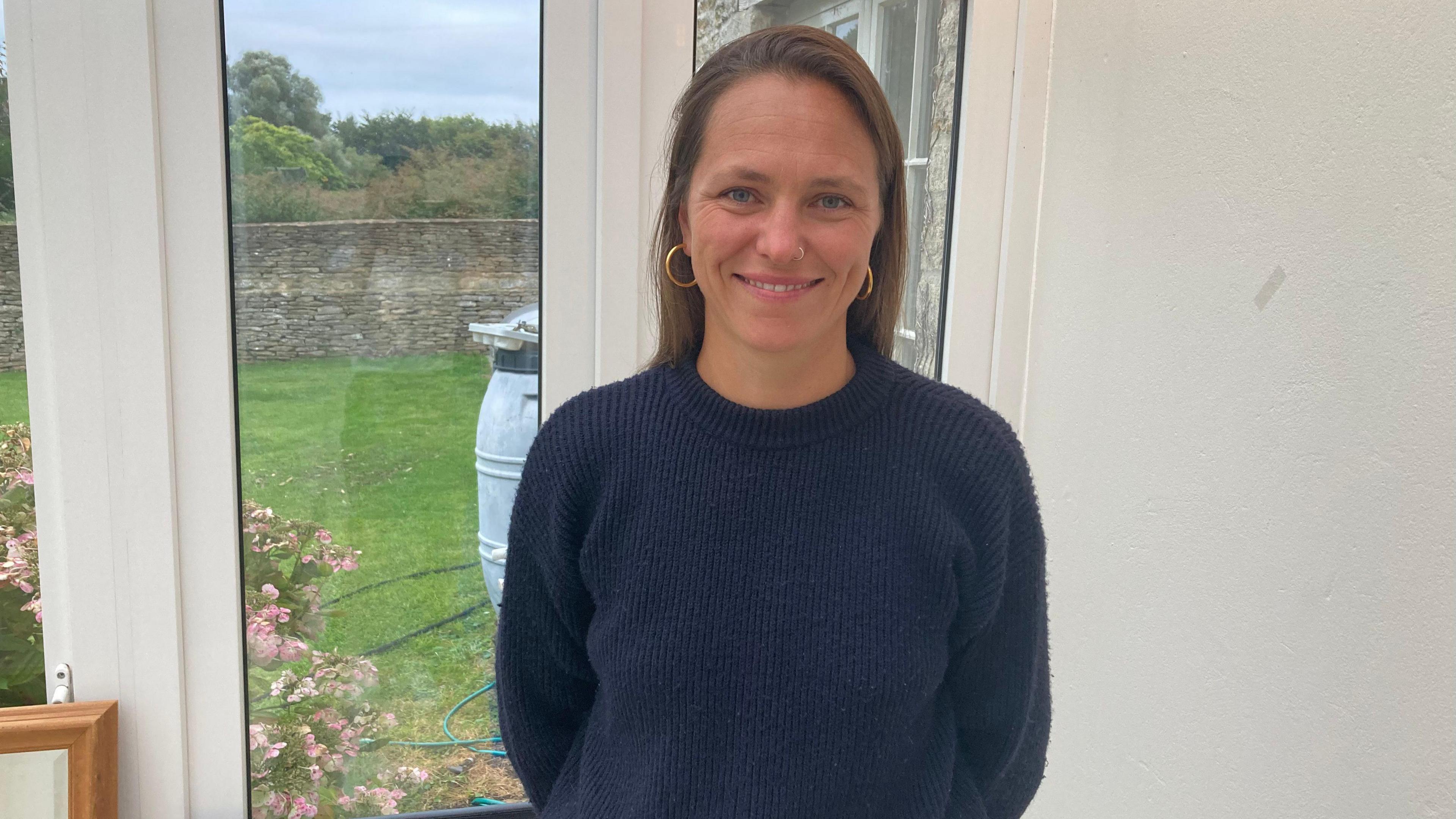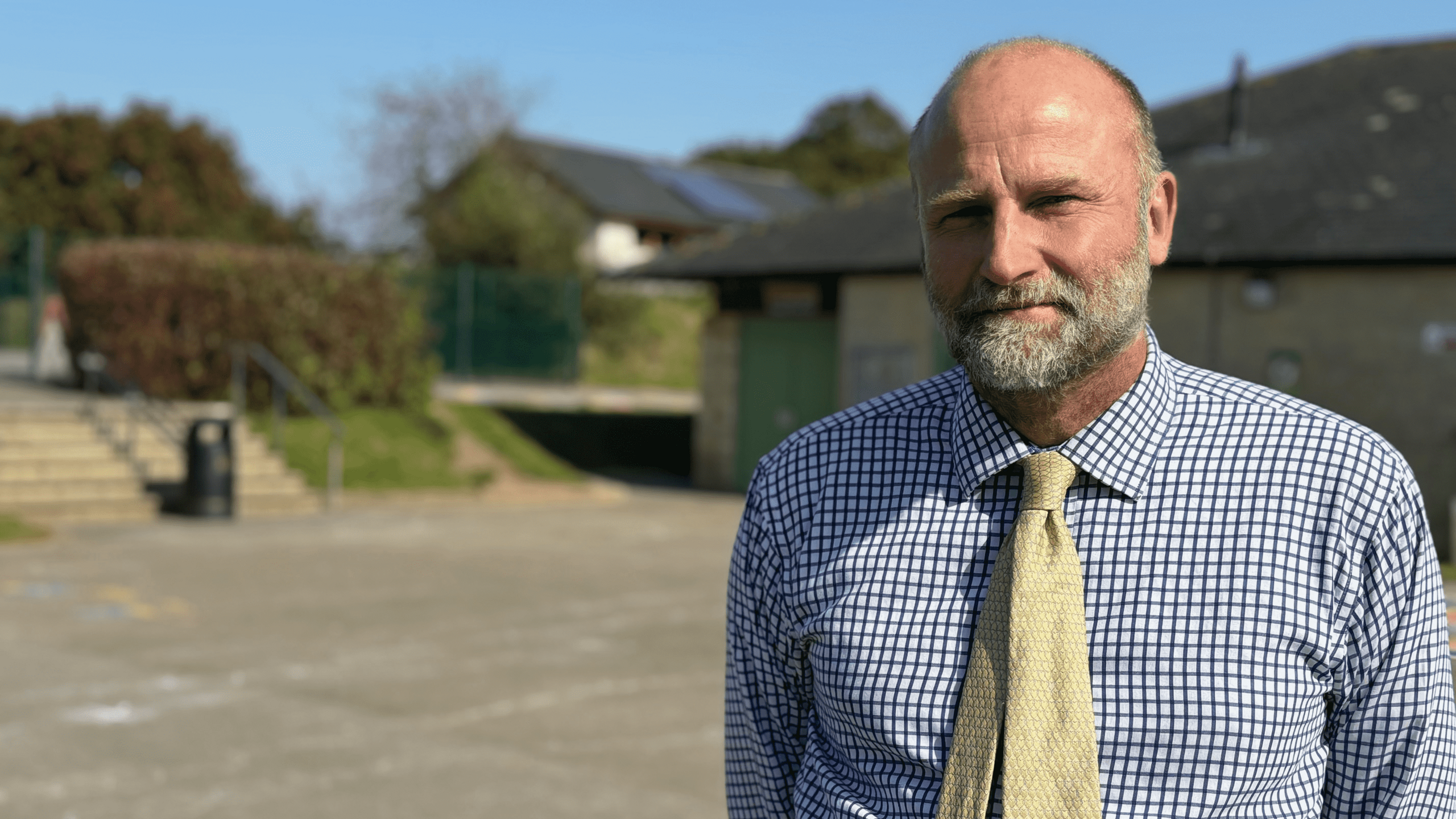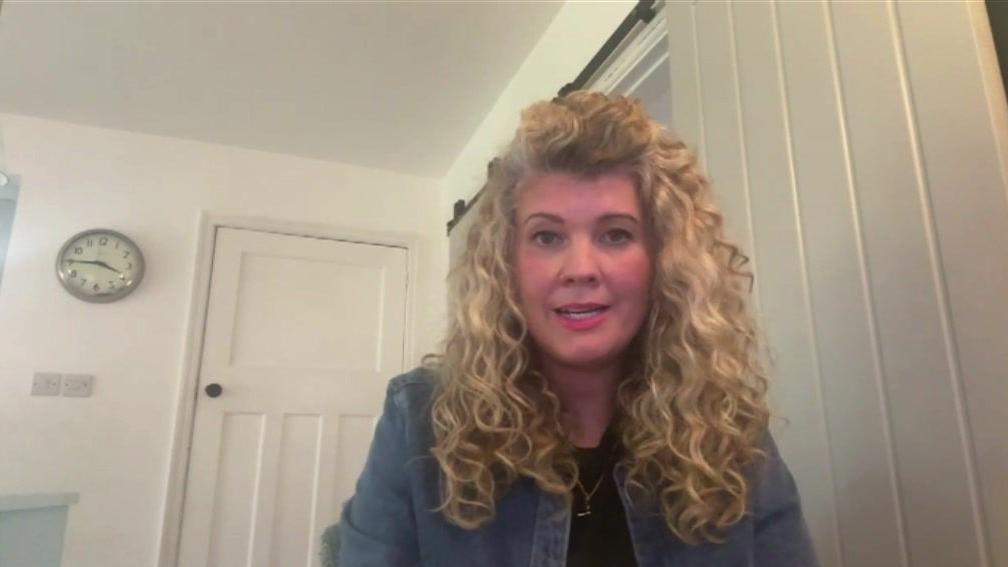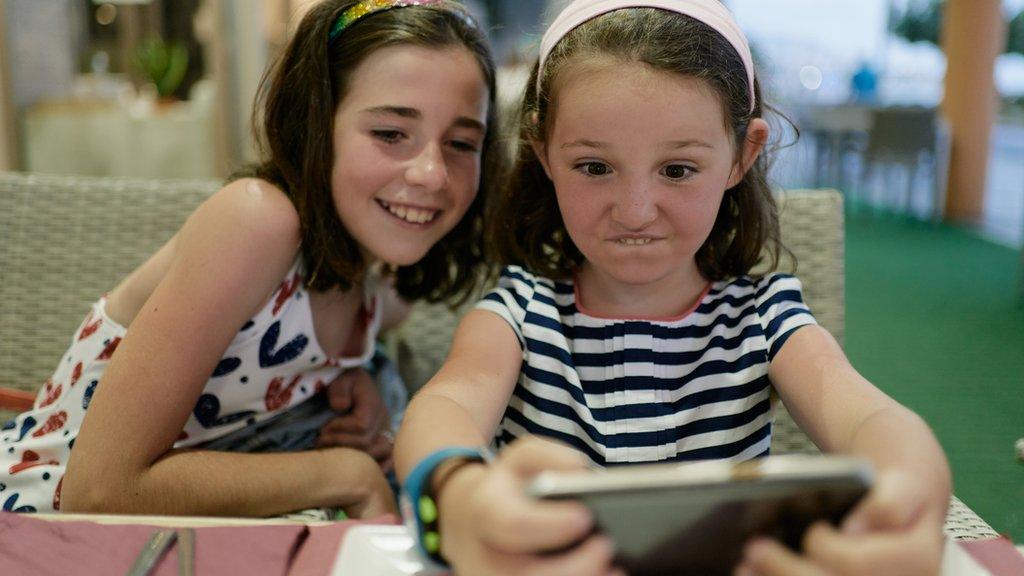Gloucestershire parents joining ban on smartphones

Anna Hill is a member of Smartphone Free Childhood in Gloucestershire
- Published
Parents in Gloucestershire are joining an international movement to keep smartphones out of the hands of young people.
More than a thousand mums and dads in the county have signed up to the Smartphone Free Childhood campaign.
It aims to get groups of parents at the same school to make a pact to withhold smartphones from their children until they are 14, removing peer pressure around the devices.
Anna Hill has three children and signed up to movement 24 hours after it launched.

Julia has joined the ban for her son Thomas
The mum from Tetbury says some of her nine-year-old daughter’s friends already have smartphones and social media accounts.
“Just yesterday some of them were talking about TikTok,” she added.
“The conversation was probably totally appropriate without a smartphone, but with a smartphone the conversation and what they were talking about wasn’t right.
“Kids are curious and they want that thrill, so I would say it’s dangerous, it’s not a toy.”
‘Moments of rage’
Latest government figures show 90% of children have a mobile phone by the age of 11, and more than half of those under 13 use social media.
In May a cross party committee of MP's said the government should consider banning smartphones for under 16-year-olds, but Labour has said this would not be practical.
Eleven-year-old Thomas has just started secondary school, and is one of a handful of pupils without a smartphone in his year.
He says he’s in two minds about wanting one.
“Most of my friends get phones at 13 and then I could message them [if I had one],” he added.
“But I don’t want to get addicted.”
Thomas’s mum, Julia, gave her older son a smartphone when he was 13. She says it has affected his behaviour.
“There’s been moments of rage and anger and frustration, because there is a big withdrawal which happens when you take it away or put it aside,” she added.
“After a year and a bit we’ve grown a little bit, but I don’t want to make the same mistake with Thomas.”

Head teacher, Nick Moss, says he is aware of children as young as six being given access to smartphones
'Destroying their innocence'
Minchinhampton Primary Academy has a ‘no phones’ policy, and carries out online safety sessions for the pupils.
Head teacher, Nick Moss, says children as young as six are being given smartphones, and almost all have them by the age of 10.
Mr Moss, who has been at the school for more than 16 years, says this has led to teachers having to address topic they’ve never had to tackle before.
“[Subjects] like online bullying, sexualised behaviour, prejudicial behaviour, harassment,” he added.
“These kind of words have not been part of our lexicon in a primary school context, and it’s upsetting really to have to front foot that and talk to the children openly and honestly about it.
“You feel like you’re slightly destroying their innocence.”
'An addiction like smoking'
A number of studies are taking places nationally and internationally to measure the impact smartphone and social media use has on young people.
Early findings from one carried out by King's College London suggest prolonged use can lead to poor sleep, increased anxiety and depression and addictive behaviours such as thinking about smartphones and social media all of the time.
Phone use can also have a negative impact on other areas of an individual’s life, and an individual continuing to use a smartphone even after their fingers, hands or neck start to hurt.
Ben Carter is a professor of medical statistics at King's College.
He believes that in the decades to come we will view children's smartphone use in a similar way to society’s current views on smoking.
“I think we’ll have a better understanding in 10 year’s time, and we’ll look back and reflect on how we were using [smartphones] and we’ll say ‘why were we doing that?’ he added.
“We can compare it to other behavioural addictions. Back in the 1950s smoking was for medicinal purposes. Now it’s castigated and seen as a part of society that we’re trying to remove entirely.”
In a statement, the government said creating a “safer online world” is a “priority”.
A spokesperson added: “Ofcom has set out the proposed steps companies will have to take to protect children on their platforms under the Online Safety Act, including using highly effective age checks and altering their algorithms to filter out harmful content.”
Get in touch
Tell us which stories we should cover in Gloucestershire
Follow BBC Gloucestershire on Facebook, external, X, external and Instagram, external. Send your story ideas to us on email or via WhatsApp on 0800 313 4630.
- Published11 September 2024

- Published19 April 2024
